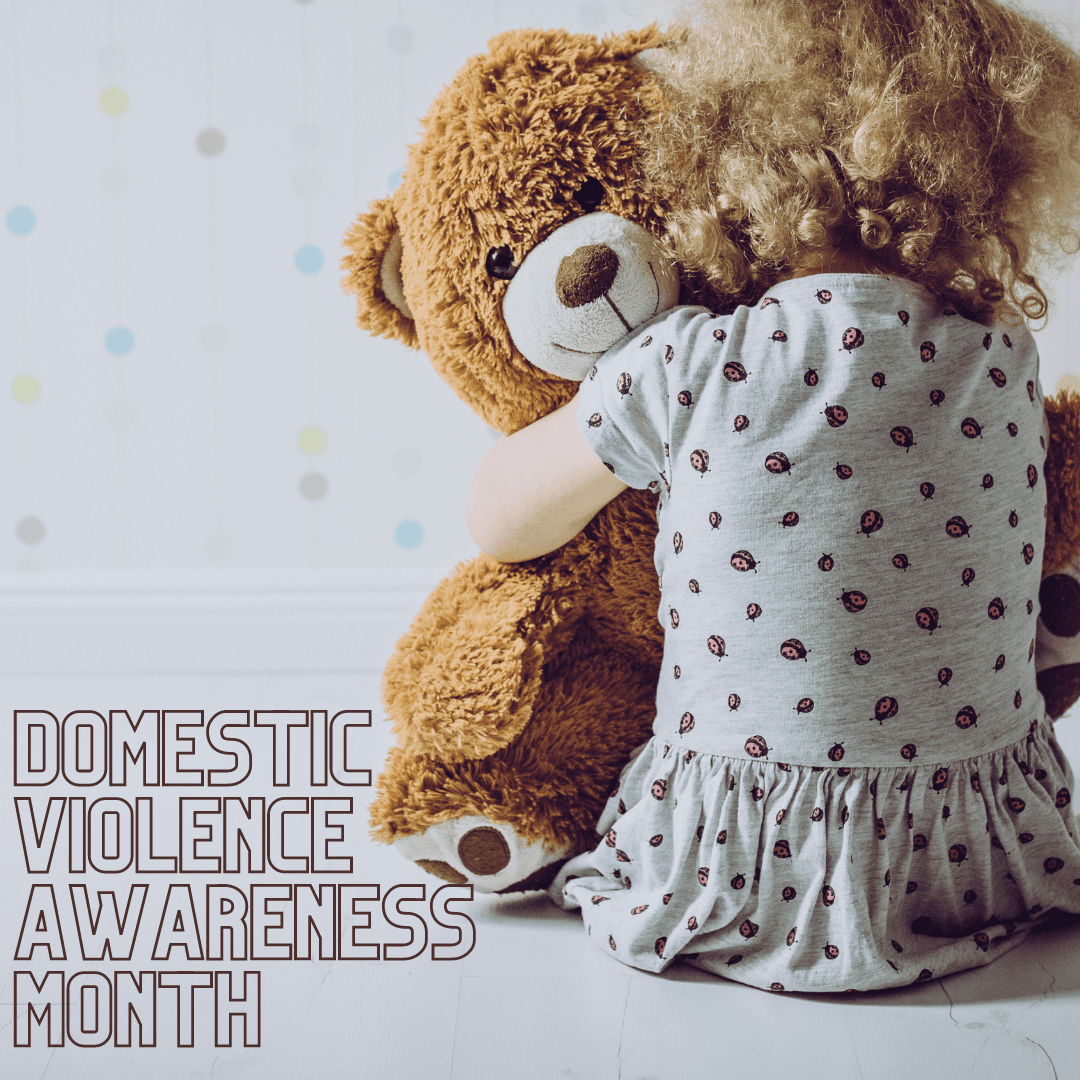
October is Domestic Violence Awareness Month, a time dedicated to understanding and confronting the devastating effects of domestic violence on individuals, families, and entire communities.
In addition to focusing on the victim, it is crucial to recognize the profound impact domestic violence has on children who witness or experience it in their homes. Domestic violence is a traumatic experience that disrupts children's lives, threatens their sense of safety, and can ultimately tear families apart. Tragically, in some cases, it can also lead to children entering the foster care system.
The Ripple Effect of Domestic Violence on Children
CASA volunteers partner with teachers, DRS, and other organizations to help calm the fear, instability, and trauma children exposed to domestic violence face. Violence in the home can have long-lasting effects on their physical, emotional, and mental well-being.
Studies show that witnessing violence can be just as detrimental to a child's development as being the direct target of abuse.
Often caught in the crossfire, children may also experience symptoms of immediate and post-traumatic stress disorder (PTSD), anxiety, depression, and other behavioral issues as a result of living in a violent environment.
Living in a volatile environment can also affect brain development, making it difficult to regulate emotions, develop healthy relationships, and succeed academically and socially.
How Domestic Violence Tears Families Apart
Domestic violence is a cycle that is difficult to break. It takes an emotional toll on families. In some cases, one or both parents may struggle to meet their children's emotional needs as they focus on survival, healing, or coping with the trauma of abuse.
Children in these situations need an advocate and a voice in court to help them struggle with feelings of guilt and confusion as they may feel torn between their love for both parents. Thanks to generous CASA donors and supporters, CASA equips volunteers with training and resources to help the child during these difficult days.
Losing a nurturing, supportive environment can leave children feeling isolated and detached, unable to form secure attachments necessary for healthy relationships later in life.
If children get removed from their homes due to safety concerns, CASA volunteers are often the most consistent people in their lives.
Children who grow up witnessing domestic violence are more likely to replicate these behaviors in their own relationships, perpetuating a cycle of generational violence. Research reports that boys who witness domestic violence are more likely to become abusers as adults, while girls are at an increased risk of becoming victims.
Domestic Violence and the Foster Care System
In severe cases, the impact of domestic violence may result in children being removed from their homes and placed into foster care. Removal occurs when child protective services determine that the child is in imminent danger or when the non-abusive parent is unable to secure a safe environment for themselves and their children.
Children who enter foster care as a result of domestic violence can face additional challenges. They may have attachment issues, difficulty trusting adults, and behavioral problems as a result of their trauma. Additionally, children in foster care are at a higher risk of experiencing further abuse or neglect, which can compound the effects of their initial exposure to domestic violence.
The foster care system is often overwhelmed and under-resourced, making it challenging to provide the specialized care these children need to heal and thrive.
Children who enter foster care due to domestic violence are also more likely to face placement instability, moving between multiple homes before finding a permanent family or returning to their biological family. Having a CASA volunteer offers these children positive options for their immediate and long-term futures.
Breaking the Cycle and Supporting Children Affected by Domestic Violence
Raising awareness about domestic violence and its impact on children is essential for breaking the cycle of abuse and promoting healing. Communities, schools, and family service organizations can play a significant role in supporting children and families affected by domestic violence. Access to counseling, trauma-informed care, and support from child advocates like CASA can help children process their experiences and build a different future for themselves.
Resources such as parenting classes, domestic violence shelters, and crisis hotlines are invaluable for parents and caregivers. By bringing awareness of domestic violence, we not only support those directly impacted but also create a safer environment for future generations.
During Domestic Violence Awareness Month, let's remember that protecting victims and children means protecting families. By understanding the impact of domestic violence on children, we can advocate for better resources and create supportive communities throughout Nebraska.
Help us ensure no child in foster care feels alone this month—and beyond.
If you or someone you know is experiencing domestic violence, reaching out for help can be the first step in breaking the cycle and providing a safer, healthier future for all.
National Domestic Violence Hotline: 1-800-799-SAFE (7233) or text "START" to 88788.


